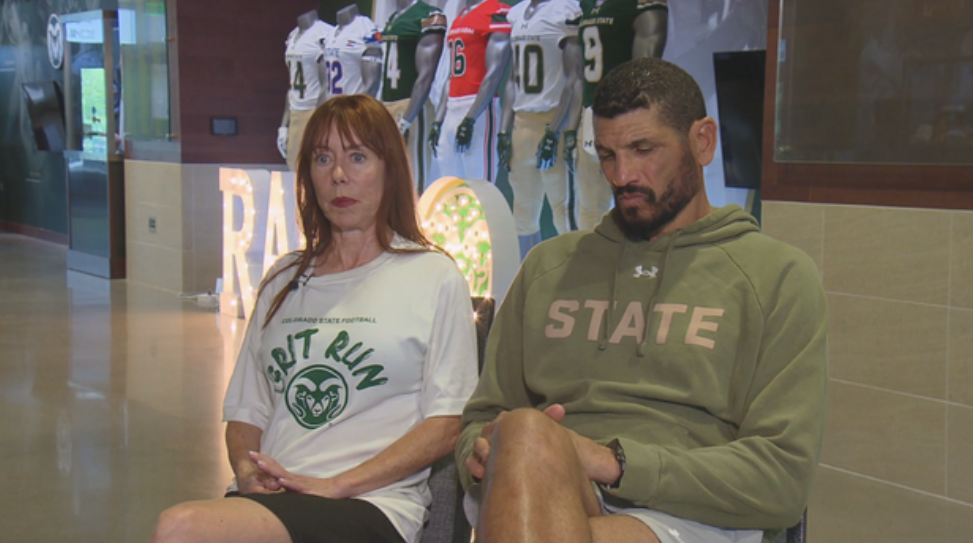Colorado State football head coach Jay Norvell and wife Kim help fund new cystic fibrosis research

By Dillon Thomas
Click here for updates on this story
FORT COLLINS, Colorado (KCNC) — Those who are battling cystic fibrosis may be one step closer to having less invasive care thanks to research being conducted at Colorado State University in Fort Collins. Students and staff are working on a technology that will allow doctors and patients to better understand a subject’s condition without having to do otherwise timely and invasive scans.
The research is funded, in part, by CSU football head coach Jay Norvell and his wife, Kim.
“My wife, Kim, was born with Cystic Fibrosis, which is a chronic disease,” Jay said. “When she was a child, her doctors told her she may not live until kindergarten.”
However, decades later, Kim has been by Jay’s side as he navigates the career of a university-level football coach. While Kim helps support Jay and his endeavors on the field, Jay is helping Kim navigate her personal battle with cystic fibrosis.
“We’ve been fighting this disease as a couple,” Jay said.
Part of that effort has been through supporting the national research foundation, as well as research being conducted on their local university campus. That’s how the couple was introduced to Jennifer Mueller and her research students.
Working alongside one other university, the team has helped develop a technology that allows for live digital scans of a patient’s lungs.
“This is an electrical impedance tomography system,” Mueller said as one of her students stood nearby wearing the sensors for the system.
By taping a series of sensors and wires to a patient, a computer is able to create a video scan that shows blood flow and airflow in and out of the lungs in real time.
“As the heart beats, we will see blood flow changes between the heart and the lung,” Mueller said.
Cystic fibrosis symptoms can vary, but often include thick mucus buildup in the lungs, which can impact oxygen and blood flow. The system being developed at CSU allows for a non-invasive scan of the lungs to look for symptoms.
Mueller said, oftentimes, doctors today will ask their patients to receive either an MRI or a CT scan. Those at times can come with exposure to radiation or even require anesthesia.
Mueller said their development will allow people as young as premature babies to be better scanned while also being able to stay awake.
“So, it gives more information (with video as opposed to a still image),” Mueller said.
“They have been doing a great job, and Jennifer’s research is really going to help us,” Kim said.
Mueller said she hopes to have the technology available for doctors and patients nationwide within the next five years.
“It is right here. It is so close,” Kim said. “I think this will be really helpful in the future for CF patients. Just seeing it live in live time. Because up until now, we can’t.”
Jay said he loves being able to see the success of the university on both the athletic and educational sides.
“To be able to meet students and professors that are actually putting their own research efforts into helping cystic fibrosis, and that being done on this amazing campus, we just felt it was natural for us to support that,” Jay said.
Please note: This content carries a strict local market embargo. If you share the same market as the contributor of this article, you may not use it on any platform.